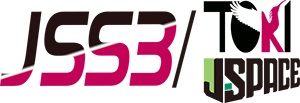Gas-Liquid Two Phase Flow Behavior Related to ECLSS
JAXA Supercomputer System Annual Report February 2022-January 2023
Report Number: R22ECWU77
Subject Category: Cooperative Graduate School System
- Responsible Representative: Hiroyuki Sugita, Research and Development Directorate, Research Unit II
- Contact Information: Masato Sakurai(sakurai.masato@jaxa.jp)
- Members: Shogo Chino, Gaku Murakami, Masato Sakurai
Abstract
Elucidate the effects of gravity on gas-liquid two-phase flows to develop separation techniques for gas-liquid two-phase flows generated by the operation of the Environment Control and Life Support System (ECLSS).
Reference URL
N/A
Reasons and benefits of using JAXA Supercomputer System
In order to evaluate the performance of gas-liquid separation technology, it is necessary to evaluate the microscopic physical phenomena of gas-liquid two-phase flows under microgravity. Large-scale and high-speed numerical simulations are essential for this study on Earth, and the vast computational resources provided by JSS are important.
Achievements of the Year
In order to apply the capillary force-driven technology to gas-liquid separation technology, the case of impregnation of droplets into a model consisting of porous media with different wettability was investigated. As a result, it was found that unidirectional transport of droplets by capillary force is possible and that this transport capacity depends on the gas flow velocity into the system (Fig. 1, Fig. 2).

Fig.1: Impregnation behavior on porous medium with wettability differences under Ugas = (a) 0 m/s, (b) 15 m/s, and (c) 20 m/s.
Publications
– Poster Presentations
Numerical Analysis of Wettability-Controlled Gas-Liquid Separation Technology with Porous Medium, 66th Space Science and Technology Conference
Usage of JSS
Computational Information
- Process Parallelization Methods: MPI
- Thread Parallelization Methods: OpenMP
- Number of Processes: 144 – 324
- Elapsed Time per Case: 24 Hour(s)
JSS3 Resources Used
Fraction of Usage in Total Resources*1(%): 0.03
Details
Please refer to System Configuration of JSS3 for the system configuration and major specifications of JSS3.
| System Name | CPU Resources Used(Core x Hours) | Fraction of Usage*2(%) |
|---|---|---|
| TOKI-SORA | 0.00 | 0.00 |
| TOKI-ST | 254456.04 | 0.25 |
| TOKI-GP | 0.00 | 0.00 |
| TOKI-XM | 666.43 | 0.42 |
| TOKI-LM | 0.00 | 0.00 |
| TOKI-TST | 0.00 | 0.00 |
| TOKI-TGP | 0.00 | 0.00 |
| TOKI-TLM | 0.00 | 0.00 |
| File System Name | Storage Assigned(GiB) | Fraction of Usage*2(%) |
|---|---|---|
| /home | 503.33 | 0.46 |
| /data and /data2 | 30753.33 | 0.24 |
| /ssd | 133.33 | 0.02 |
| Archiver Name | Storage Used(TiB) | Fraction of Usage*2(%) |
|---|---|---|
| J-SPACE | 0.00 | 0.00 |
*1: Fraction of Usage in Total Resources: Weighted average of three resource types (Computing, File System, and Archiver).
*2: Fraction of Usage:Percentage of usage relative to each resource used in one year.
ISV Software Licenses Used
| ISV Software Licenses Used(Hours) | Fraction of Usage*2(%) | |
|---|---|---|
| ISV Software Licenses(Total) | 0.00 | 0.00 |
*2: Fraction of Usage:Percentage of usage relative to each resource used in one year.
JAXA Supercomputer System Annual Report February 2022-January 2023



